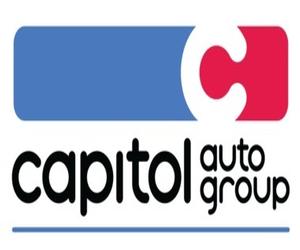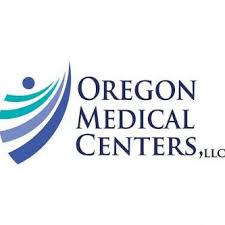SUMMARY:
In multiple Work Sessions and in Budget Committee meetings this year, the City Council has
discussed the City’s funding challenges and efforts to improve essential services that support a Safe
Salem. Based on the Council discussion at their May 15, 2023 Work Session, and the Budget
Committee’s May 10, 2023 recommendation, staff have drafted a proposal for an employee-paid
payroll tax. The draft ordinance is attached to this report, and first reading of the ordinance is planned for the June 26, 2023 City Council meeting. City Council may direct that a public hearing on
the ordinance be scheduled for either the June 26th or July 10th city council meeting.
ISSUE:
Safe Salem employee-paid payroll tax
FACTS AND FINDINGS:
Based on discussions during the City Council work session on May 15, 2023 staff have prepared a proposal for a Sale Salem employee-paid payroll tax for Council’s consideration. First reading of the proposed ordinance is planned for June 26, 2023. City Council may direct that a public hearing be scheduled for June 26th or July 10th.
Safe Salem Proposal
The highlights included below are the key components of the Safe Salem funding proposal. These highlights reflect the feedback received from the Budget Committee during its deliberation and their recommendation to City Council. The details of this proposal will be worked out through a rule making process and would follow on the heels of adoption of the ordinance implementing the revenue measure.
Implementation Date: Upon City Council passage of the ordinance at second reading, (tentatively planned for July 10, 2023) staff will begin the implementation process and the tax would be effective as early as July 1, 2024.
Sunset: Included in the proposed ordinance is a provision that the City Council would refer the payroll tax to voters no later than July 1, 2031 (seven years after implementation). Unless voters approve continuing the payroll tax, it would end on December 31, 2031.
Rate: The proposed rate is 0.814% (.00814). No tax would be imposed on those making minimum wage.
Self-Employment: A tax would be imposed on net self-employment earnings at a rate of 0.814%
Subject Wages: The tax applies to all wages for work performed in the City of Salem.
Restrictions on Use: The tax would be restricted to funding community safety and administration of the tax.
- Police services
- Fire
- Emergency medical services
- 9-1-1 call services
- Code enforcement
- Unsheltered services
- Administration of the payroll tax
BACKGROUND:
With the proposed tax structure, the City estimates generating $27.9 million annually. The proposed tax is dedicated to community safety and will be used to fund a combination of existing and new services.
The Salem community and demand for services are growing, but the City’s revenues and services have not kept pace. The City needs a more balanced way to pay for services in the City’s General Fund. The City’s General Fund supports services that do not have a dedicated revenue source. These services include police and fire, parks and recreation, the Salem Public Library, Center 50+, neighborhood programs, youth programs, land use planning and zoning, enforcement of codes, social services that help those in need, municipal court and internal services like legal, finance, communications, procurement, and more that provide a Citywide benefit.
The costs for these services continue to grow as demand increases, but revenues from property taxes that support them grow at a much slower rate. This structural imbalance will result in a $19.4M deficit by fiscal year 2028. Working capital, or the savings account for the General Fund, will be completely depleted if new revenue is not created. These dollars are important to cover payroll between July and October until property taxes arrive.
Simply closing the immediate $19.4M funding gap will not increase community services or add staffing and the City’s ability to provide existing services will continue to erode. In addition to solving the structural imbalance in the General Fund, more funding would be needed to continue Salem’s various sheltering programs, increase program service levels to meet community need, or to add services and programs where possible.
The City’s General Fund is largely supported by property taxes which are limited in their growth. In the 1990s, Measures 5 and 50 capped property tax revenue growth to no more than 3% per year of a property’s assessed valuation (not market value). The result of these measures is a structural imbalance where revenue has not kept pace with inflation or increases in demand for services due to population growth and increased expenses. Due to these limitations, property tax revenues are not sufficient to support increasing costs of employees, goods, and services local governments use to provide community services. For example, budgeted property tax revenue to the General Fund in fiscal year 2023 only covers 81% of the Police and Fire Department budgeted expenses. It also only covers 47% of the entire General Fund expenses in fiscal year 2023 and will continue to decline as a percentage of total revenue over time.
This is not a problem unique to Salem. To balance budgets, cities across Oregon have used reserves, implemented new taxes, increased user fees, deferred maintenance of properties and facilities, and cut services. The City of Salem has done many of these things already, which has helped, but without additional revenue soon, the City will have to dramatically reduce services to the community across all General Fund departments, including police and fire.
The City has responded to the community’s requests to fill in gaps when it comes to sheltering and homeless services. In the 2017 Strategic Plan, residents looked to the City to do more to provide affordable housing and serve the homeless in the community. Traditionally, this valuable work has been outside of the City’s core services and has been addressed mainly by State and County governments, the Salem Housing Authority which receives federal and state funding to support affordable housing projects. Many of the City’s current programs have been funded with one time federal and state grants. City funding of these programs will cease without new revenue.
Additionally, the City has restored services previously eliminated due to the impact of the 2008 Great Recession. These changes began in 2009 to align services with the drop in revenues from the recession and made further changes again in 2013. The City closed two fire stations, reduced library hours, reduced recreation services and support to neighborhoods. Since that time, the City has reopened the two fires stations, restored library hours, and has continued to make improvements to services the community expects and values. This illustrates the reality that reducing city services is complex and would take years to recover from should that path be taken.
While the City is always looking for ways to be efficient, the expenses for goods and services have increased with inflation and have outpaced the City’s revenue growth. Costs for personnel have increased as Salem seeks to remain a competitive employer in a competitive job market. To address rising costs, the City is using technology in new ways and has changed the ways services are provided, using more energy efficient products, charging for services that make sense, and engaging volunteers and foundations to support community services.
The Safe Salem Payroll Tax, combined with the increased City Operations Fee, will allow the City to close the General Fund deficit and increase community safety services and put the City on a more sustainable financial path












